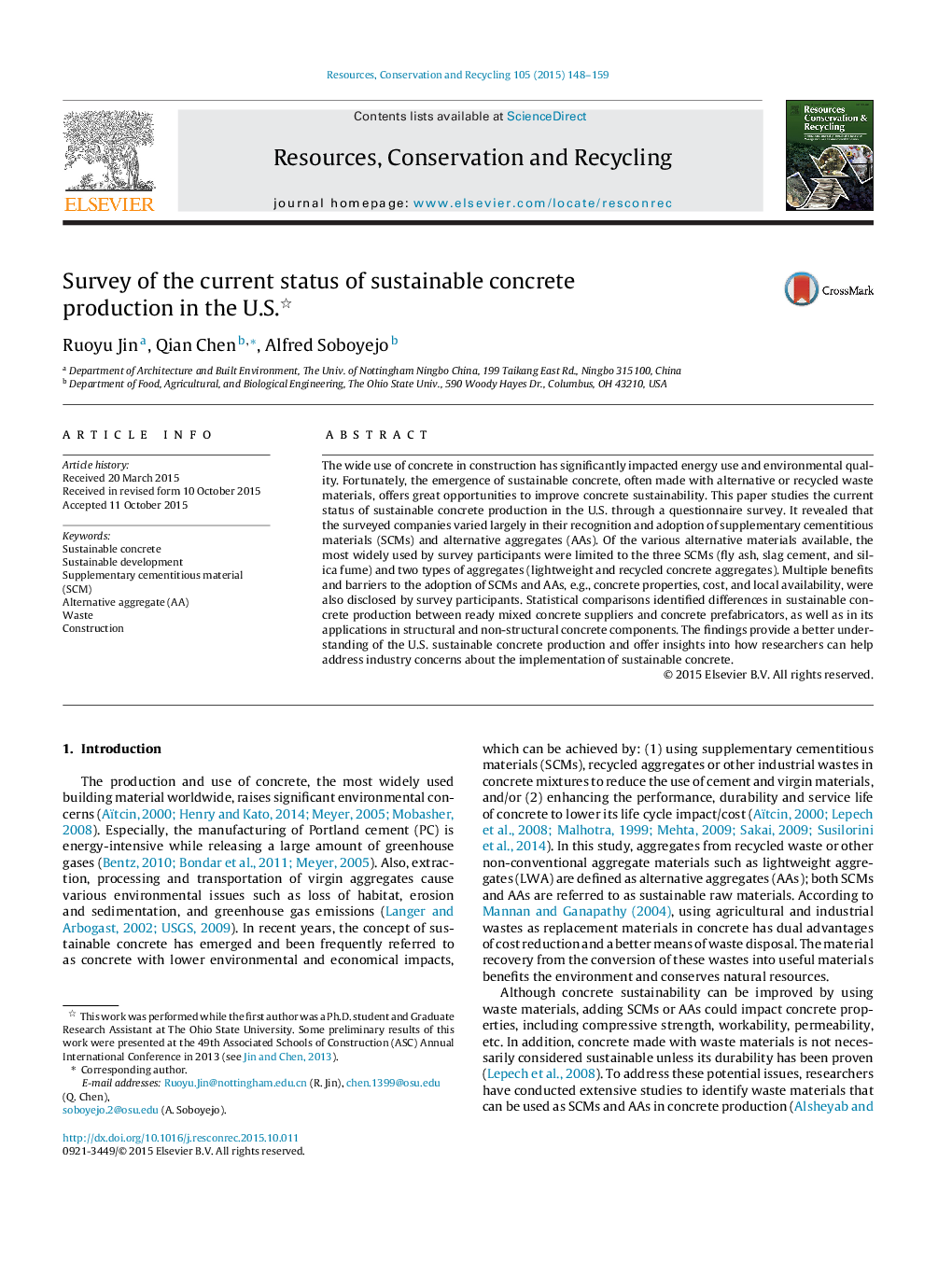| Article ID | Journal | Published Year | Pages | File Type |
|---|---|---|---|---|
| 10508059 | Resources, Conservation and Recycling | 2015 | 12 Pages |
Abstract
The wide use of concrete in construction has significantly impacted energy use and environmental quality. Fortunately, the emergence of sustainable concrete, often made with alternative or recycled waste materials, offers great opportunities to improve concrete sustainability. This paper studies the current status of sustainable concrete production in the U.S. through a questionnaire survey. It revealed that the surveyed companies varied largely in their recognition and adoption of supplementary cementitious materials (SCMs) and alternative aggregates (AAs). Of the various alternative materials available, the most widely used by survey participants were limited to the three SCMs (fly ash, slag cement, and silica fume) and two types of aggregates (lightweight and recycled concrete aggregates). Multiple benefits and barriers to the adoption of SCMs and AAs, e.g., concrete properties, cost, and local availability, were also disclosed by survey participants. Statistical comparisons identified differences in sustainable concrete production between ready mixed concrete suppliers and concrete prefabricators, as well as in its applications in structural and non-structural concrete components. The findings provide a better understanding of the U.S. sustainable concrete production and offer insights into how researchers can help address industry concerns about the implementation of sustainable concrete.
Related Topics
Physical Sciences and Engineering
Energy
Renewable Energy, Sustainability and the Environment
Authors
Ruoyu Jin, Qian Chen, Alfred Soboyejo,
